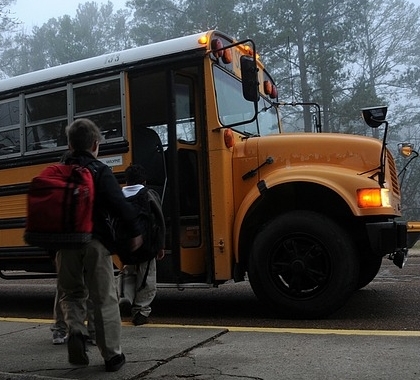Limited Education Choice
Thomas McMillin Howard started Delta Streets Ministry to help boys enrolled in failing public schools.
“After two years of doing that, I realized we needed to have the guys for more than two hours a day,” Howard said.
Howard founded Delta Streets Academy (DSA) in 2012. The school, which is funded by private donors, has expanded from fourteen students in seventh and eighth grade to 60 students in grades seven through 12. Annual tuition at DSA is less than $1,000 a year.
Mississippi passed its first school choice law five years ago, in the form of a limited dyslexia scholarship program. The state also offers a limited voucher and education savings account (ESA) program for special needs students. Brett Kittredge, director of external relations for Empower Mississippi, says most families in the state still have limited educational options.
“As has often been said, your ZIP code or a family’s income very much determines the education you will receive,” Kittredge said. “Mississippi is no different from most places in that students living in certain areas of the state have access to a high-quality education, while many others do not.”
Serving the Disadvantaged
Howard says he experienced a “paradigm shift” while working with an all-boys school ministry in New Orleans during his sophomore year of college.
“It opened my eyes to where justice was being done,” Howard said. “The ministry’s Bible study focused on the poverty mandate, why we suffer as Christians. The big one was Matthew 25: ‘Whatever you did for one of the least of these brothers and sisters of mine, you did for me.’ It was going to be hard for me to do those things in the reservoir [suburban] community of Jackson. I knew I wanted to live somewhere where there was a high rate of poverty and injustices being done.”
A math education major and former athlete, Howard took a job at Greenwood High School, a failing school in the Delta area of Mississippi.
“I didn’t know anybody in the Delta,” Howard said. “You hear horror stories about the Delta. I took a baseball coaching job in Greenwood thinking I would just teach and coach the next thirty years in Greenwood High and share the Gospel. Running a school or starting an organization is not in my wheelhouse. But after a few years of being at Greenwood High, I knew I wouldn’t be able to survive mentally and emotionally. It was not a good spot for someone really trying to have an impact.”
In 2012, Howard put together a steering committee that included a lawyer and a local woman interested in volunteering and funding, and eventually that expanded to educators and other staff members. DSA opened that year with two full-time and three part-time teachers.
Holding Costs Down
DSA is housed in the First Baptist Church in downtown Greenwood. Originally on a one-year agreement, the church continues to house the school, in its sixth year, free of charge.
“We charge [families] $75 a month for ten months, but spend a little over $8,500 per student each year,” Howard said.
DSA’s teachers are not paid “anything close to what we need to be paying them,” Howard said.
‘Changing Lives in the City’
Howard says prayer and Bible recitations are part of each school day.
“The Gospel is interwoven in everything we do, … making sure [students] understand God is the creator and there is order, and it is not all by chance,” Howard said.
Kittredge says DSA is fulfilling a need in the region.
“Delta Streets Academy is changing lives in the city of Greenwood,” Kittredge said. “[Howard] is providing the boys who attend his school with a rigorous academic experience combined with the values and lessons they will need to be successful men. There is a need for schools like this throughout the Delta and throughout our state.”
‘We Need to Do More’
Howard says DSA parents are satisfied, but the school would welcome government funding.
“Some people are very grateful that [these students are] housed in a controlled environment, and it’s conducive to learning, and they are being taught by a Christian, but we need to do more,” Howard said. “We hope to replicate [what we’re doing] all throughout the Delta if the school choice bills on the table could make it sustainable. If every student at our school could receive $7,000 from the state, on top of what we fundraise, we could pay our teachers what they should be paid.”
Calls for ESAs
Kittredge says expanding government-funded education options would improve Mississippi’s educational landscape.
“We certainly see ESAs [education savings accounts] and other measures to expand educational opportunity as something that will have a significant impact on Mississippi students,” Kittredge said. “These programs would level the playing field for all students and help put them in the school that fits their needs. We know every child is unique and their education should be as unique as they are.
“Delta Streets is unique in that they are donor-funded and students attend for very little, but we know that is not replicable everywhere in the state,” Kittredge said. “But if we had an ESA, I would expect to see high-quality schools like this open throughout the state, particularly where they are needed the most.”
Ashley Bateman ([email protected]) writes from Alexandria, Virginia.




